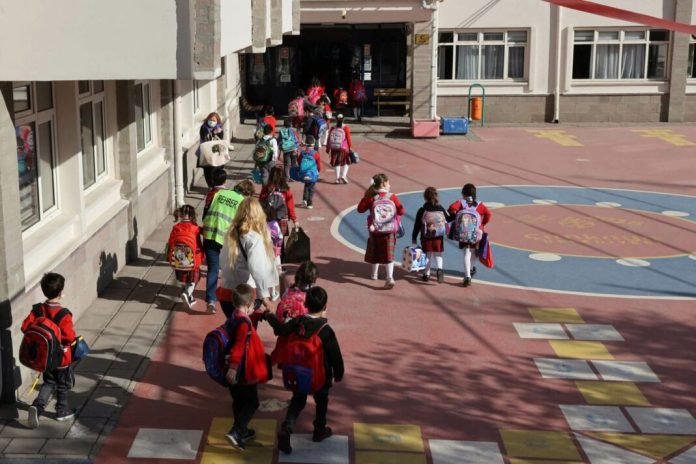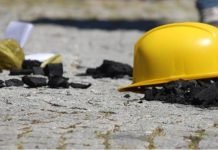Teachers across Turkey have complained that the new academic year has begun with serious structural problems threatening student safety and wellbeing, the BirGün daily reported.
Teachers warned that public schools are struggling with poor hygiene, overcrowded classrooms, staff shortages and a failure to provide students with nutritious meals. Some schools even started the new school year without blackboards.
According to union representatives, the Justice and Development Party’s (AKP) policies that treat education as an expense rather than an investment are to blame for the problems schools face.
“Schools largely try to cover staffing needs from their own budgets, so schools without sufficient budgets face difficulties. Sometimes municipalities send support staff. This is how hygiene and cleaning problems are being addressed. A permanent solution would be for the Ministry of Education to assign permanent support staff – such as janitors – to schools,” said Barış Uluocak from the Education and Science Workers Union (Eğitim-Sen) Istanbul branch.
Tülay Yıldırım from Eğitim-Sen in Ankara said the situation was no different there. “When we visit schools, we see that the bathrooms have no soap and are not cleaned. I work at a vocational high school, where we have no security. In the past police would be stationed at school gates, or schools would hire security personnel on their own. At the high school level, the need for security is even greater. In short, there are serious problems in both hygiene and safety.”
Yıldırım added that students also faced nutritional problems and that as union members they demand that schools provide at least one free meal a day and water fountains, so students don’t have to buy bottled water. “Some students cannot even afford bottled water, and they have to drink from restroom taps, which is not suitable for drinking,” she explained.
Moreover, many schools were still demanding “registration fees” although the Ministry of Education had previously said such fees were banned. Unions have previously criticized the Ministry of Education for not imposing stricter regulations and for failing to penalize school administrations for forcing parents to pay.
“Complaints from parents are widespread. Especially in certain regions, parents trying to enroll their children in so-called ‘good schools’ are faced with high registration fees demanded by administrators. Registration fees never truly disappeared; despite the ministry’s denial, the burden on parents continues to grow,” said Yıldırım.
Hamdi Çalık from Eğitim-Sen in Izmir said they observed similar problems regarding hygiene, safety and a lack of nutritious food in their province.
“There is an enormous need for support staff, but because not enough are employed, cleaning cannot be done regularly or properly. The lack of cleaning supplies is also striking as student bathrooms don’t even have soap or toilet paper. Moreover, school canteens only have processed, unhealthy snacks, and students are forced to make do with them. This poses a serious risk for young people’s development.”
On overcrowding, Çalık said that classrooms were so overcrowded that they struggled even to fit a trashcan inside. “As long as the system stays the same, the results won’t change. Public schools aren’t given resources, staff isn’t hired and no new classrooms are opened. Year after year, nothing really changes. Unfortunately, these conditions will negatively affect students’ physical and mental health in the future,” he said.
Previous reports have revealed that public schools lack basic facilities such as libraries, science labs and safe recreational spaces, which are essential for a quality education. Physical conditions are also often inadequate, with schools struggling to provide clean and secure environments for students.
Furthermore, frequent teacher turnover and a shortage of qualified educators have led to instability for students. Some children have had multiple teachers in a single school year, while others are taught by unlicensed or temporary educators due to staffing shortages.
Experts have repeatedly urged the government to develop better educational policies, focused on equitable access to quality education.















